Why Every Child Deserves a Wildflower Meadow
Jenny makes a case for why our work with schools is just as vital as planting trees
Often at our guided walks and events we request donations for going towards our nature conservation work and our environmental education work in particular with schools. The former might be more tangible than the latter, buying more wildflower seeds, trees or tools. However, what we do and why we work with schools might be less clear but just as important and possibly more impactful.
Every year our service have an education project that runs in schools and online from the Google Classroom. The school projects over the last few years have been varied about Eagles (2019), Highland Wildlife (2021) Mammals (2022), Wildflowers (2023) and this year. 2024, freshwater life and ponds. We are starting to look at planning our 2025 project now.
The Curriculum for Excellence in Scotland should be an ideal way to integrate outdoor learning and learning for sustainability into day-to-day school learning, but sometimes confidence and skills of teaching staff, lack of time or lack of staff in general mean that children and teachers don’t get the opportunity to go beyond the classroom setting as much as they would like.
In the Highlands, where our landscape and environment are so remarkable and such an important part of our lives, this feels particularly counter intuitive to not get kids out and about. This is where we can assist.
What does an Ranger environmental education session look like?
Sometimes we create habitats in schools such as wildflower meadows or shallow mini ponds but not in isolation from understanding. Games and activities and discussions all about the science and ecology of what we are doing and how it benefits nature are incorporated into the practical conservation elements of our sessions.
The titles of each topic are only our starting point. We prepare games and materials, which focus on these subjects and delve a bit deeper. However, the biggest value to the child is probably in being outside, in engaging with the natural world, using their senses in different ways and being comfortable in the outdoors.
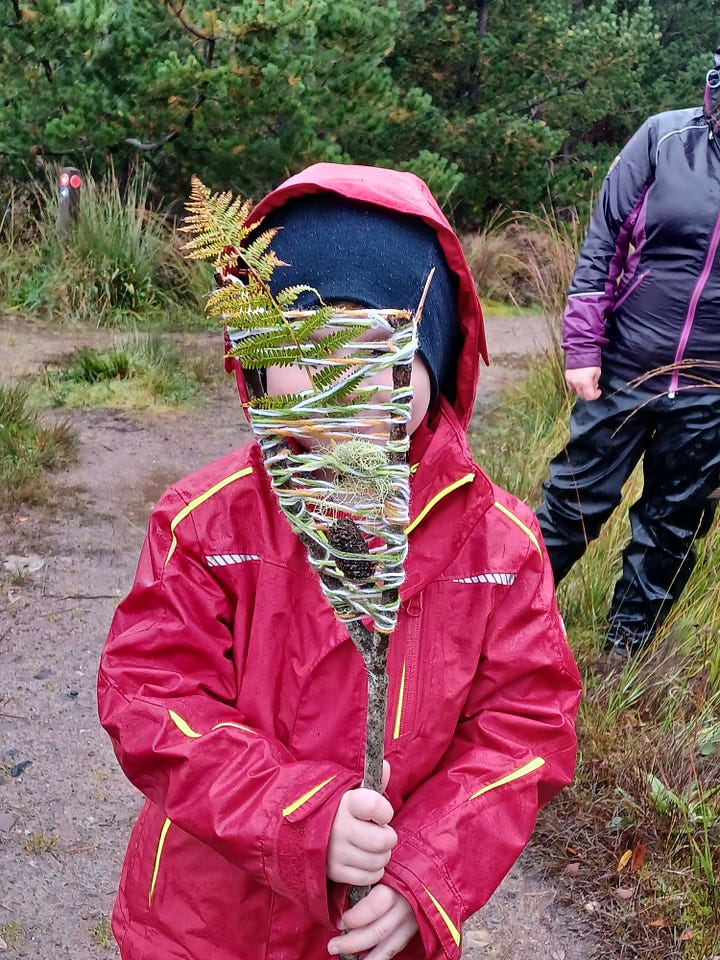
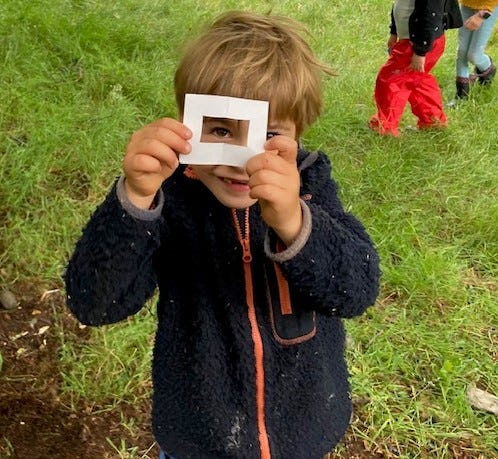
It is a symbiosis to learn to love nature at a young age - to look after it because you appreciate it and in turn be somewhere you can enjoy and seek comfort from nature in later life. It is important we give these opportunities to allow children to realise they are part of the natural world and not separate from it.
By engaging with whole classes, and sometimes whole schools, everyone gets a chance to join in with nature-related activities, there is no discrimination.
When we see that the statistics show a steady year-on-year increase in the hours children spend on screens between phones, TV and computer games, that can equate to a decrease in time outside and an increase in anxiety. That in turn can result in a decrease in unstructured exercise (without a label or expectation), of balance and gross motor skills. It means not using senses in the same way to experience textures, sights, sounds or smells in nature. Aside from not getting the pleasure from an experience outdoors, not engaging senses in a three-dimensional way, can have serious impacts on brain development.
As sad as this remains, none of this is news. The Lost Spells book published in 2017, was a response to children’s dictionaries poised to take out words such as ‘acorn’ and ‘bramble’ because children were not using them. If they are not using them, they are not experiencing them. Not long before that book was published, the term Nature Deficit Disorder was first used in a National Trust report in 2012 and that got a lot of attention. That report is now 12 years-old and the ‘disorder’ needs urgently addressed more than ever for the sake of future generations and the nature sharing the space with them. How can people look after something they don’t know about or care about and value? A report pubished by NatureScot in 2023 showed that the amount of time school children spent in nature had decreased to a mere 7 minutes per week.
So, when we talk about our education side of things, we are taking kids out to have fun, to explore to experience and to learn in a different way but we also aim to be tackling something much bigger for individuals and the planet.
While planting trees is vital, cultivating a love for them in school children will ensure these projects succeed in the long term.
Further reading:
Jenny Grant High Life Highland Countryside ranger for Wester Ross holds a deep passion for the nature and heritage of Scottish Highlands. Her lifelong pursuit involves learning and teaching Highland ecology, embracing both scientific study and local wisdom. Jenny's holistic approach extends beyond academia; she immerses herself in nature through hikes, wildlife encounters, and community engagement. Her enthusiasm is infectious, often sharing insights and leading conservation efforts. Jenny embodies a commitment to understanding and preserving the diverse ecosystem around her, proving that ecological knowledge is not just learned but lived and cherished.


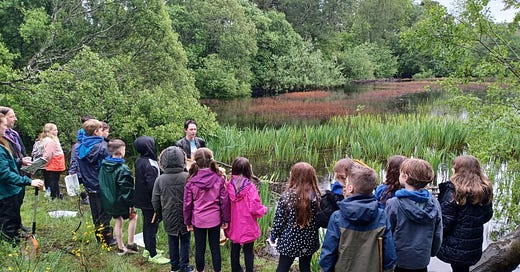



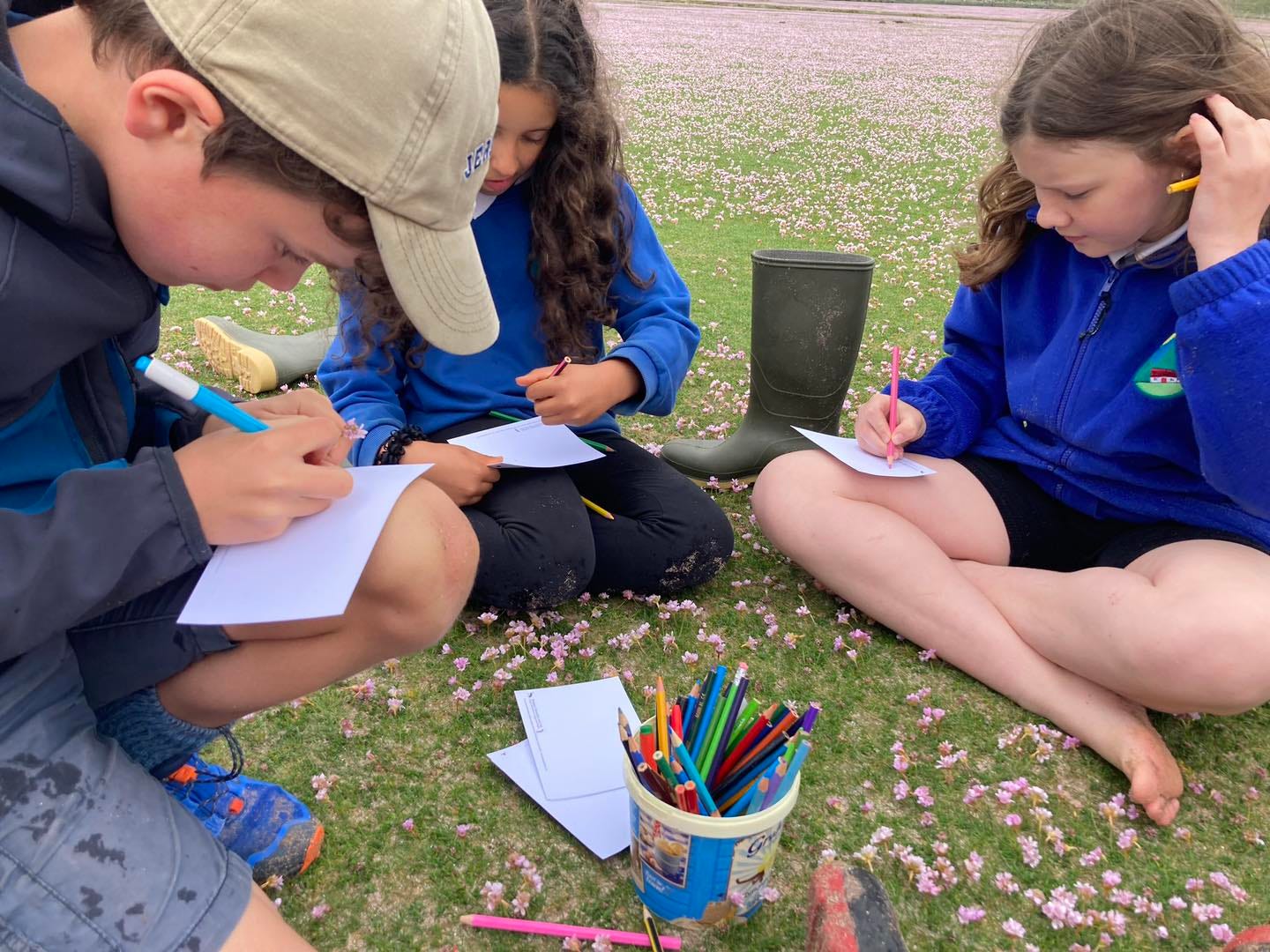
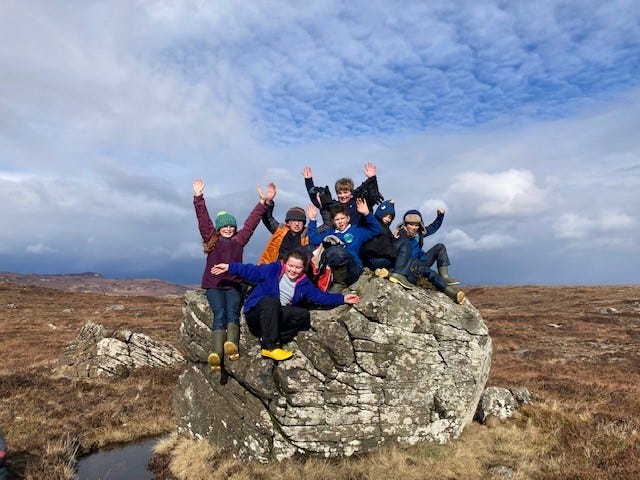
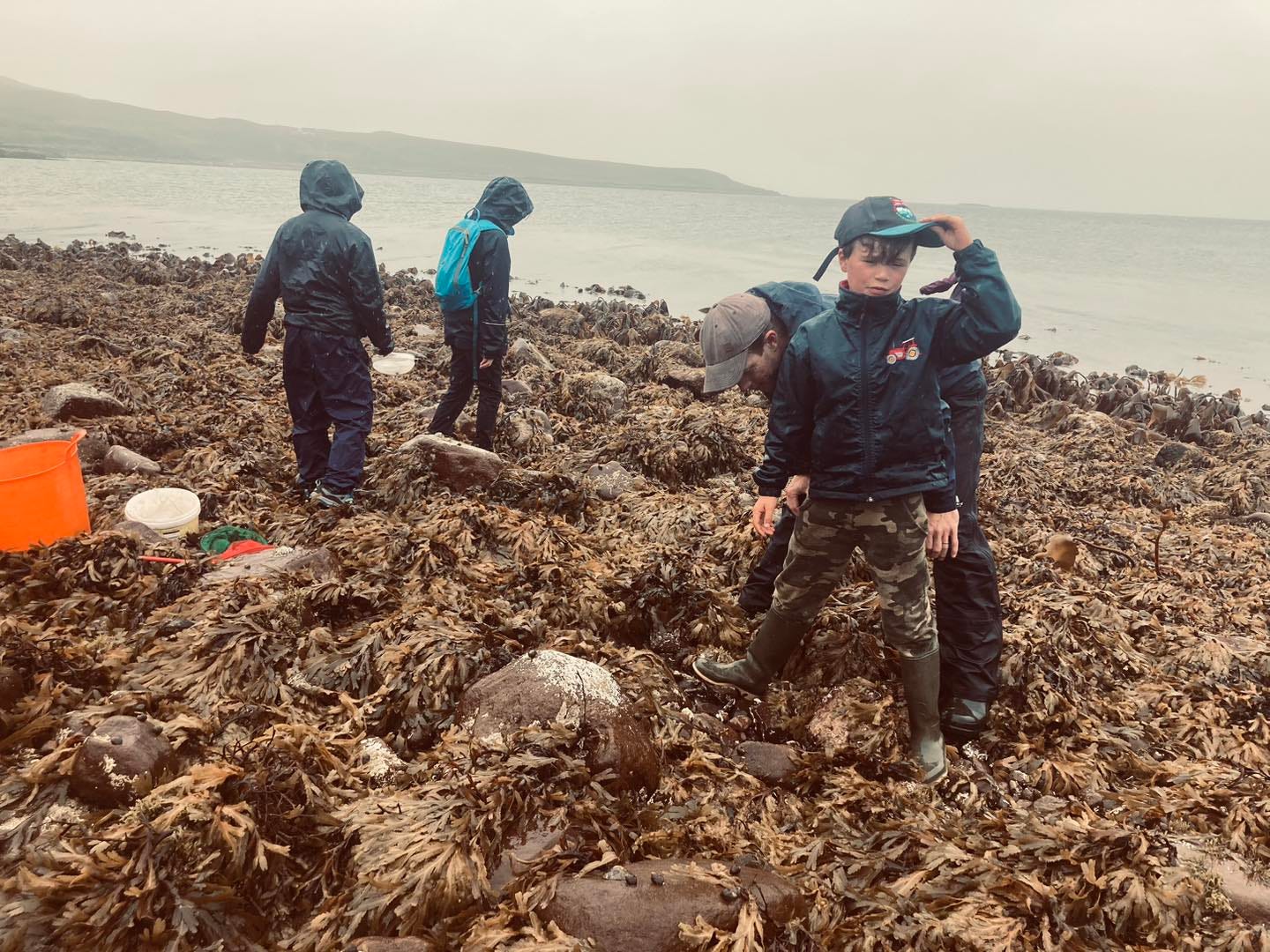
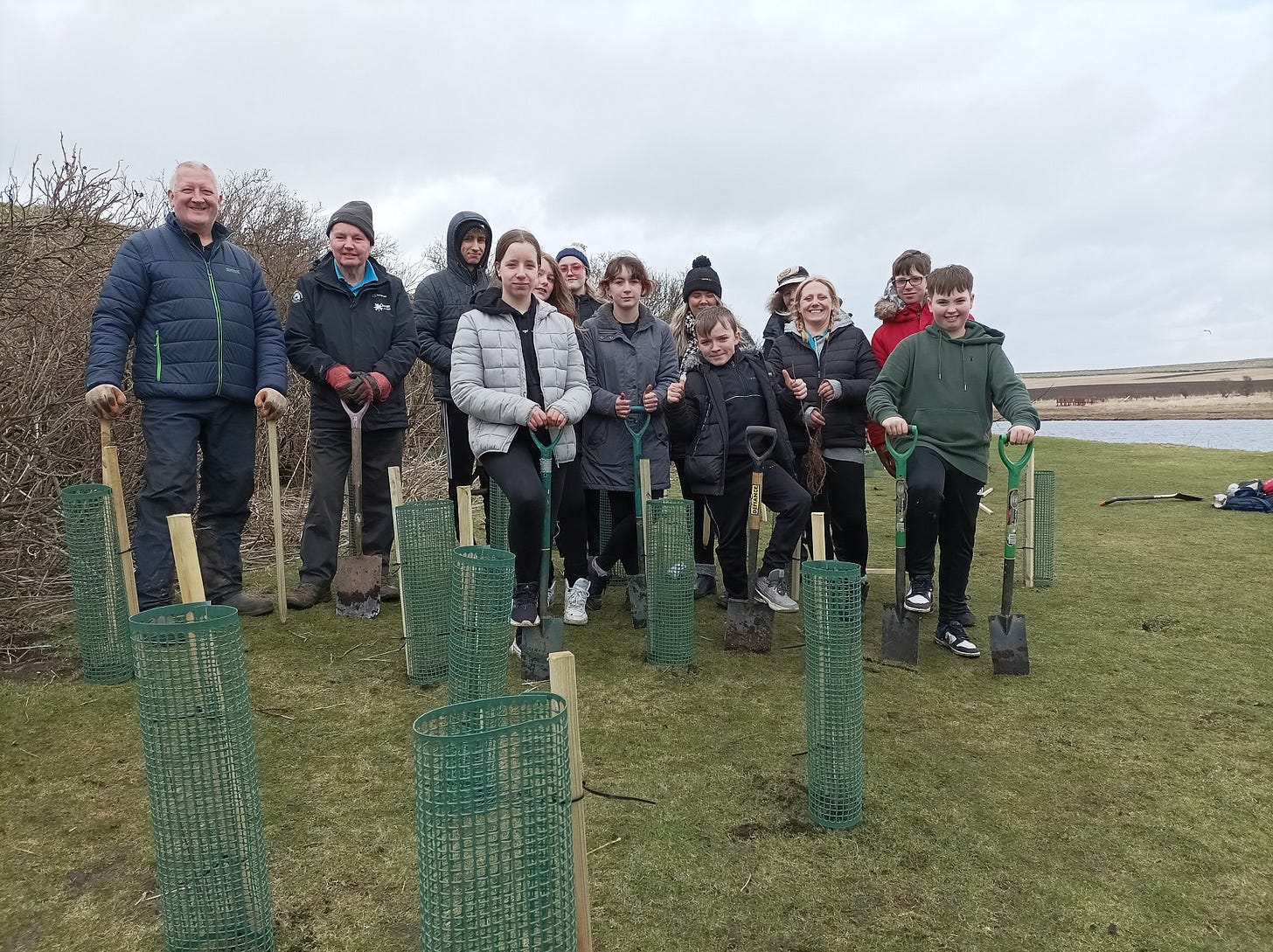

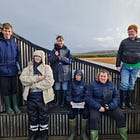
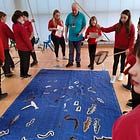
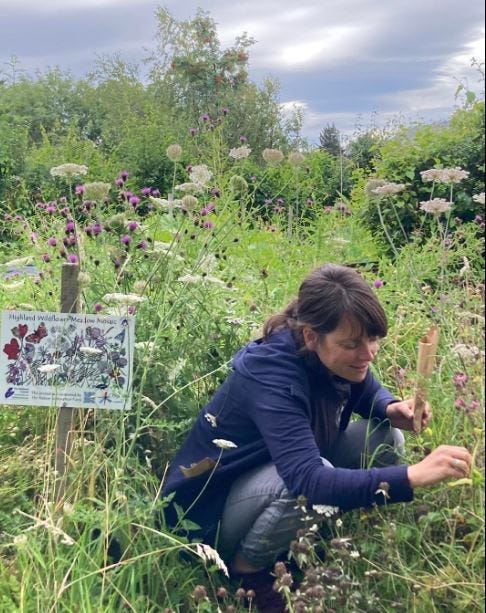
Really important work on so many levels - respect to Rangers!